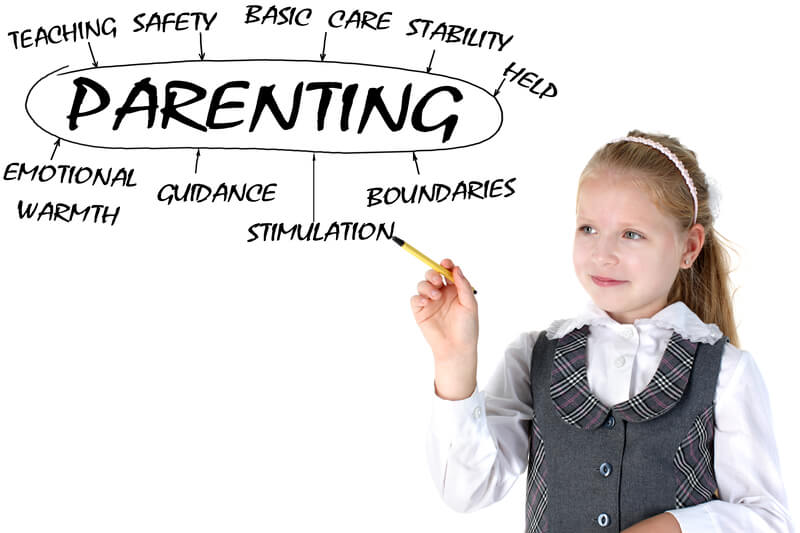Why Are Parenting Plans Important in Child Custody Cases? Parenting plans can be agreed upon by co-parents in child custody disputes. A parenting plan serves as an agreement that outlines the rights and responsibilities of both parents about their child’s future. Parenting plans are frequently considered when a couple with a child or children decides to separate, divorce, or end their relationship. To accept this kind of plan, you don’t have to be married or go through a divorce. You must establish a parenting plan to break up with your co-parent or seek child custody.
Types of Parenting Plans
Parents can choose from or customize several parenting plans to suit their needs. Here are some common types of parenting plans:
- Joint Physical Custody Plan: In this plan, both parents share physical custody of the child, meaning the child spends substantial time living with each parent. The schedule can be 50/50 or tailored to the parents’ availability and the child’s needs.
- Sole Physical Custody Plan: In this plan, one parent has primary physical custody, and the other parent typically has visitation rights. The non-custodial parent may have visitation rights on weekends, holidays, or other agreed-upon times.
- Holiday and Vacation Schedule Plan: It outlines how parents share holidays, school breaks, and vacations. It often precedes the regular parenting schedule during special times of the year.
- Parenting Agreement Modification Plan: This plan outlines the process for modifying the parenting agreement as circumstances change, such as when children’s needs evolve, or parents relocate.
- Safety and Emergency Plan: In cases with safety concerns, this plan includes provisions for how parents will handle emergencies, communication about the child’s well-being, and restraining orders if necessary.
It’s essential to remember that parenting plans should prioritize the best interests of the child and be as detailed and specific as possible to avoid conflicts and confusion. Parents can work together to create a customized plan or seek the assistance of legal professionals or mediators to help craft an agreement that suits their unique situation.
Why Are Parenting Plans Important in Child Custody Cases?
Parenting plans are crucial components of child custody cases for several compelling reasons. These legal documents outline the responsibilities and expectations of both parents following a divorce or separation, and they protect the child’s best interests.
Clarity and Structure
Parenting plans provide a clear and structured framework for co-parenting. They establish guidelines for important aspects of a child’s life, such as visitation schedules, decision-making authority, and financial responsibilities. This clarity helps minimize confusion and conflict between parents.
Stability and Consistency
Consistency is essential for a child’s sense of stability and security. A well-crafted parenting plan helps maintain a consistent routine for the child, including school schedules, extracurricular activities, and holiday arrangements. This stability can ease the transition from one household to another.
Reduced Conflict
Conflict between parents can harm a child’s mental and emotional health. Parenting plans establish clear expectations and procedures, reducing the likelihood of disputes and disagreements. When conflicts arise, the plan often includes mechanisms for dispute resolution, such as mediation or court intervention.
Legal Protection
Parenting plans are legally binding documents approved by the court. It means that both parents are legally obligated to adhere to the terms and conditions outlined in the plan. If one parent fails to comply, the other can seek legal remedies to enforce the plan.
Communication and Cooperation
Developing a parenting plan requires parents to communicate and cooperate, which can improve their co-parenting relationship over time. Effective communication is vital for addressing the child’s needs and ensuring that both parents remain involved.

Elements of a Parenting Plan
Crucial details regarding legal and physical custody are included in parenting plans, including consent and custody agreements. Legal custody refers to a parent’s authority to make significant choices for the good of their child, and it should be covered in your parenting plan. For example, determining where your child attends school and approving medical treatment are both included in legal custody.
Your plan should also address physical custody. It speaks to the division of your child’s time between each parent and the right of a parent to stay with their child under their physical care. One parent may have sole custody, or the parents may share physical or legal custody. The right to frequent visitation with the child may belong to the other parent.
Furthermore, parenting plans frequently address issues like:
- How the non-custodial parent’s visitation schedule will work
- Information about custody during school holidays
- When parents can take their child on vacation while having custody of them
- Specifications of educational choices, like who is paying for a private school
- How parents intend to handle their child’s religious education
- Information on how the parents are going to communicate regarding the child’s needs and custody (e.g., whether they’ll speak in person or only through written communication)
Before agreeing to a parenting plan, speaking with an attorney about the many significant factors that can affect your child is an excellent idea. You can get advice on the extent of your legal rights regarding custody from your child custody lawyer. Additionally, before you sign a parenting plan, your family law lawyer can assist you in negotiating its terms.
Negotiating the Details of a Parenting Plan
In the course of a separation, divorce, or breakup, you can have the chance to bargain over important issues that will impact your life in the future. For instance, when deciding on child custody, some parents use mediation. Some make use of the collaborative divorce procedure in Las Vegas. You can get help from your child custody attorney in Las Vegas when you negotiate a parenting plan. Asserting your rights and weighing your options will require assistance from you.
Changes Regarding Parenting Plans
One of several contexts exists in which you can draft your parenting plan: in court before the judge, with the assistance of a mediator, or with the assistance of your attorneys before separation or throughout a collaborative divorce. Parenting plans come in several forms, such as consent and custody agreements.
You might need to adjust your plan over time depending on your chosen type. Your child grows older after creating a parenting plan, and your family’s needs may vary significantly. If you want to change it, you should go through all the legal procedures instead of just coming to an informal understanding with your co-parents. You and your child are protected if you do this. Additionally, it prevents the scenario in which you consent to a loose modification to the plan, but the co-parent pushes it too far. Get help from your Las Vegas child custody attorney once more if you think it’s time to modify your parenting plan.

Huggins Law Office Is Here to Help!
If you require advice about child custody, the legal team at Huggins Law Office is accessible right now to assess your options. We’ll put in a lot of effort to get the best result for you and assist you in realizing your legal rights. Our Las Vegas lawyers have years of legal expertise, making them skilled, efficient, and compassionate professionals. We are happy to service clients in Las Vegas. To arrange a consultation, don’t hesitate to contact us at (702) 387-4014 or on our website.

